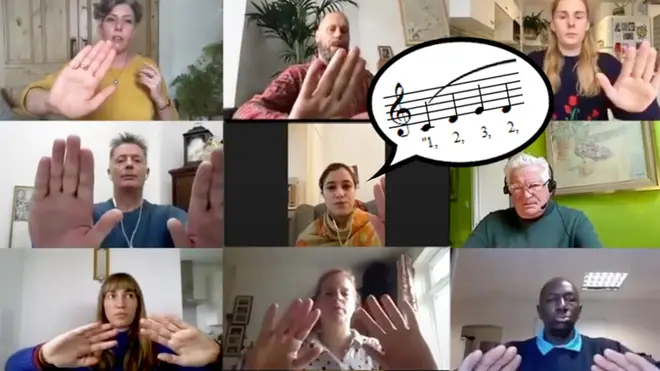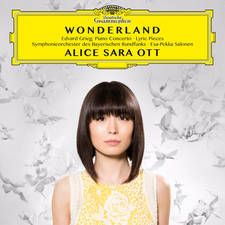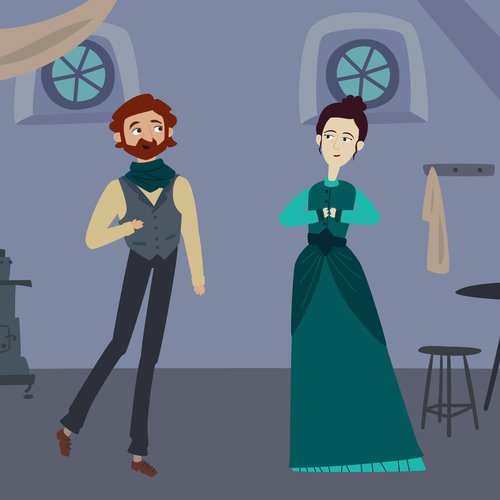English National Opera singers share operatic breathing techniques to aid ‘Long Covid’ recovery
28 January 2021, 11:45 | Updated: 28 January 2021, 11:48

‘In for four, out for four…’ – breathing techniques practised by opera singers are being used to help Long Covid sufferers recover from breathlessness and anxiety.
English National Opera singers are teaching breathing techniques to ‘Long Covid’ sufferers, who are experiencing breathlessness and anxiety long after their initial infection.
In a wonderful marriage of musical and medical expertise, the newly nationalised programme offers patients group sessions with professional vocal specialists, along with breathing and wellbeing exercises online.
After taking part in a six-week pilot of ENO Breathe, a partnership between the London-based opera company and Imperial College Healthcare NHS Trust, patients reported definite improvements in symptoms and wellbeing.
“I never before had an experience like this,” participant Ludmila said. “I didn’t think things like singing could help me with my breathing and improve my recovery from COVID and it has really helped me emotionally and physically.”
Now, ENO Breathe is being rolled out to up to 1,000 patients in England, with the aim to combat the increasing need for support for those with Long Covid symptoms.
Arts Council England representative Tonya Nelson said the partnership “illustrates what is possible when creative organisations partner with healthcare settings.”
Read more: Intubated COVID-19 patient plays violin to thank medical staff >

ENO Breathe Trailer ǀ English National Opera
In the programme, singers are teaching patients how to breathe deeply. They use vocal techniques commonly used by opera performers such as diaphragmatic breathing and simple singing exercises, using lullabies as a musical starting point.
Singing lullabies is a calming activity, coaches say, and the songs cross boundaries of culture for the diverse group of patients involved in the pilot study – 25 percent of whom had English as a second language.
After the pilot, patients said they felt more confident in singing, and their general wellbeing had increased.
While the training is specific, it is also a powerful way to connect Long Covid sufferers and bring comfort and relief through music-making.
Deborah, one of the pilot participants, said after the programme: “Even though some of us are not singers, it doesn't really matter. It just feels that you want to be in that gang, you want to join in.”
Following the sessions, participants are equipped with exercises to practise these techniques in their own time, with online resources specifically designed to support their progress.
Read more: Opera-singing doctor serenades hospital staff with impassioned ‘Nessun dorma’ >

English National Opera make scrubs, masks and hats for London hospitals
By the end of the pilot programme, participants reported definite improvements in symptoms and wellbeing. 90 percent reported positive improvement in their breathlessness, 91 percent felt their levels of anxiety had dropped, and overall fatigue levels had improved.
Prior to the programme, the group’s mean Generalised Anxiety Disorder Assessment score was 6.7. By the end of the six weeks, this had dropped to 3.2.
Dr Sarah Elkin, a consultant at Imperial Healthcare NHS Trust, said: “Ongoing breathlessness is debilitating and can be frightening. We hope this programme will support people to improve and help reduce their symptoms.”
Read more: NHS doctor and violinist husband serenade neighbours in balcony duet >
Health and Social Care Secretary Matt Hancock supports the scheme, which helps those experiencing symptoms eight to 12 weeks after their initial diagnosis. “I am very grateful for the work of the ENO and Imperial College Healthcare Trust in helping those suffering from the impact of this terrible virus,” he said.
Throughout the pandemic, which has closed opera houses and cancelled performances, the ENO has been amazingly creative in finding ways to help out. Last year, they made scrubs and masks to protect NHS workers, during a period of PPE shortage.




